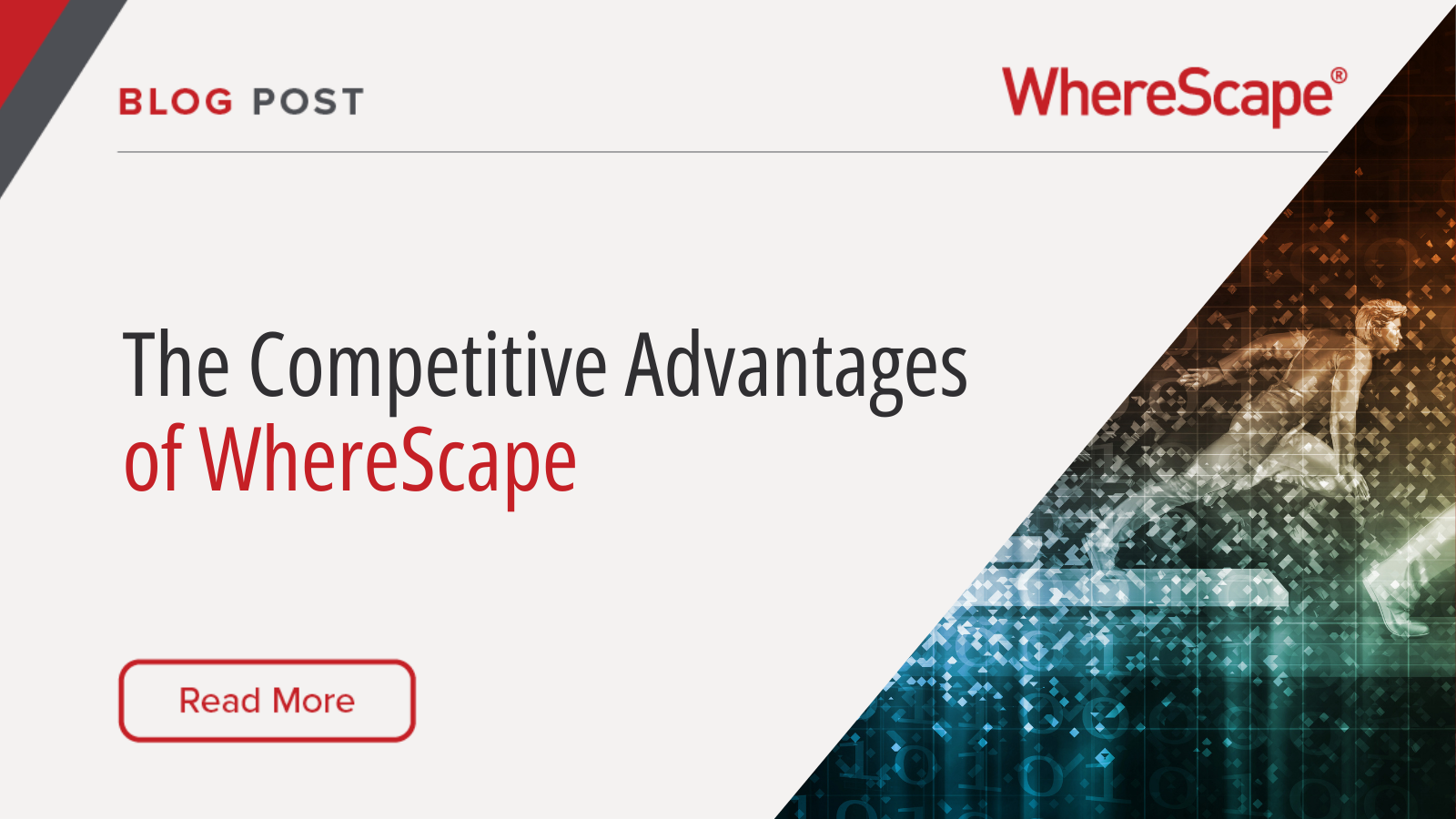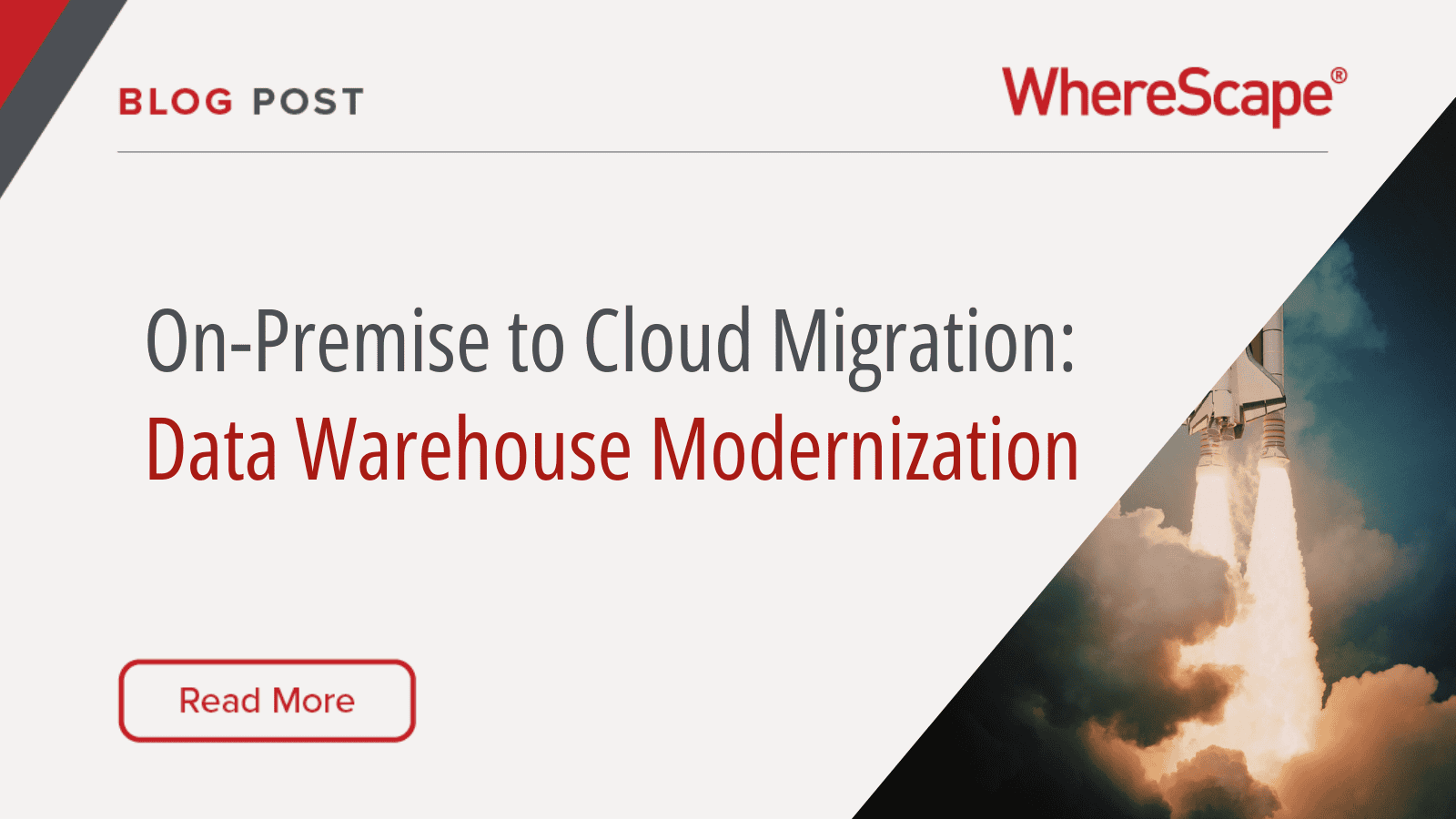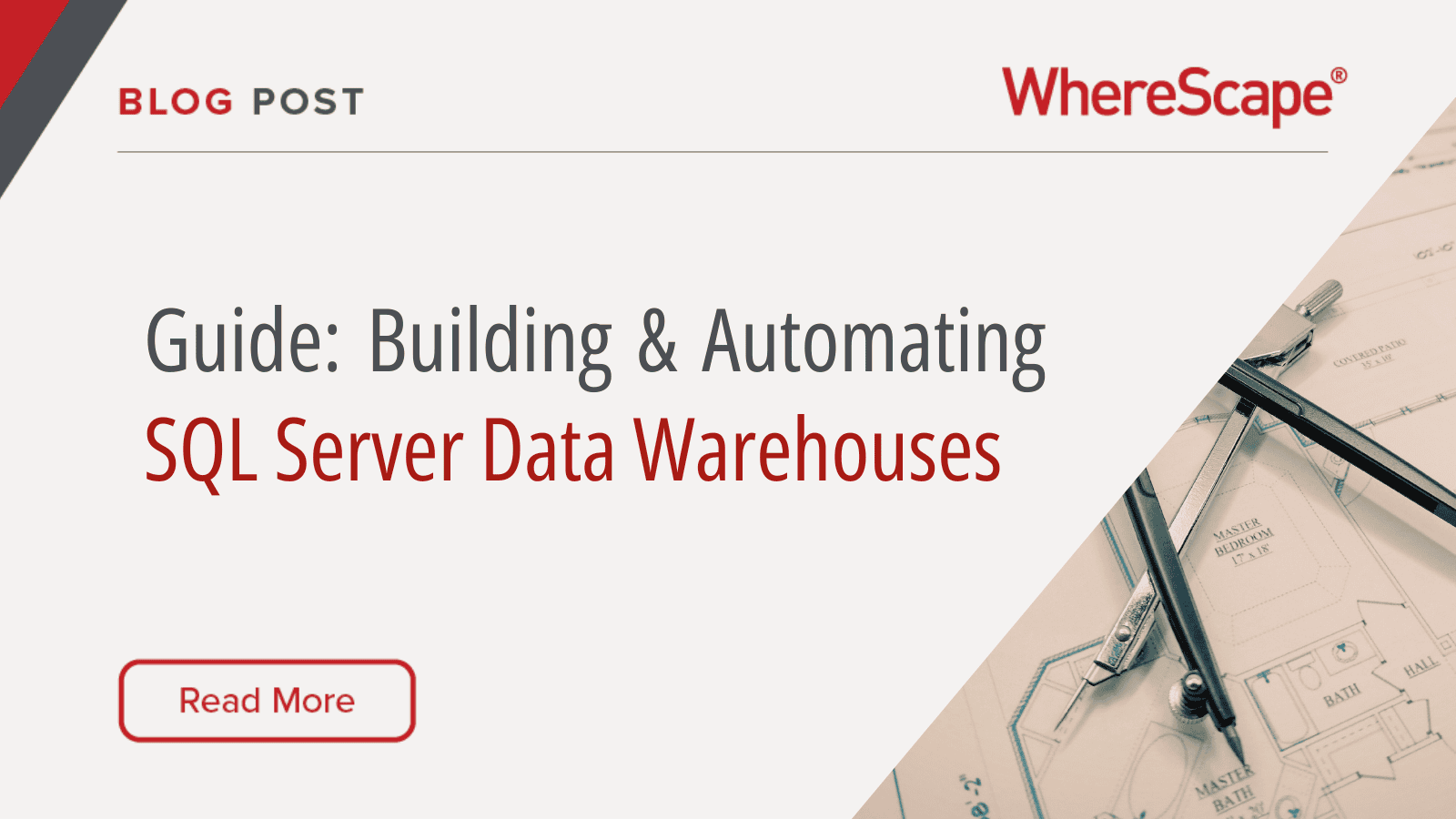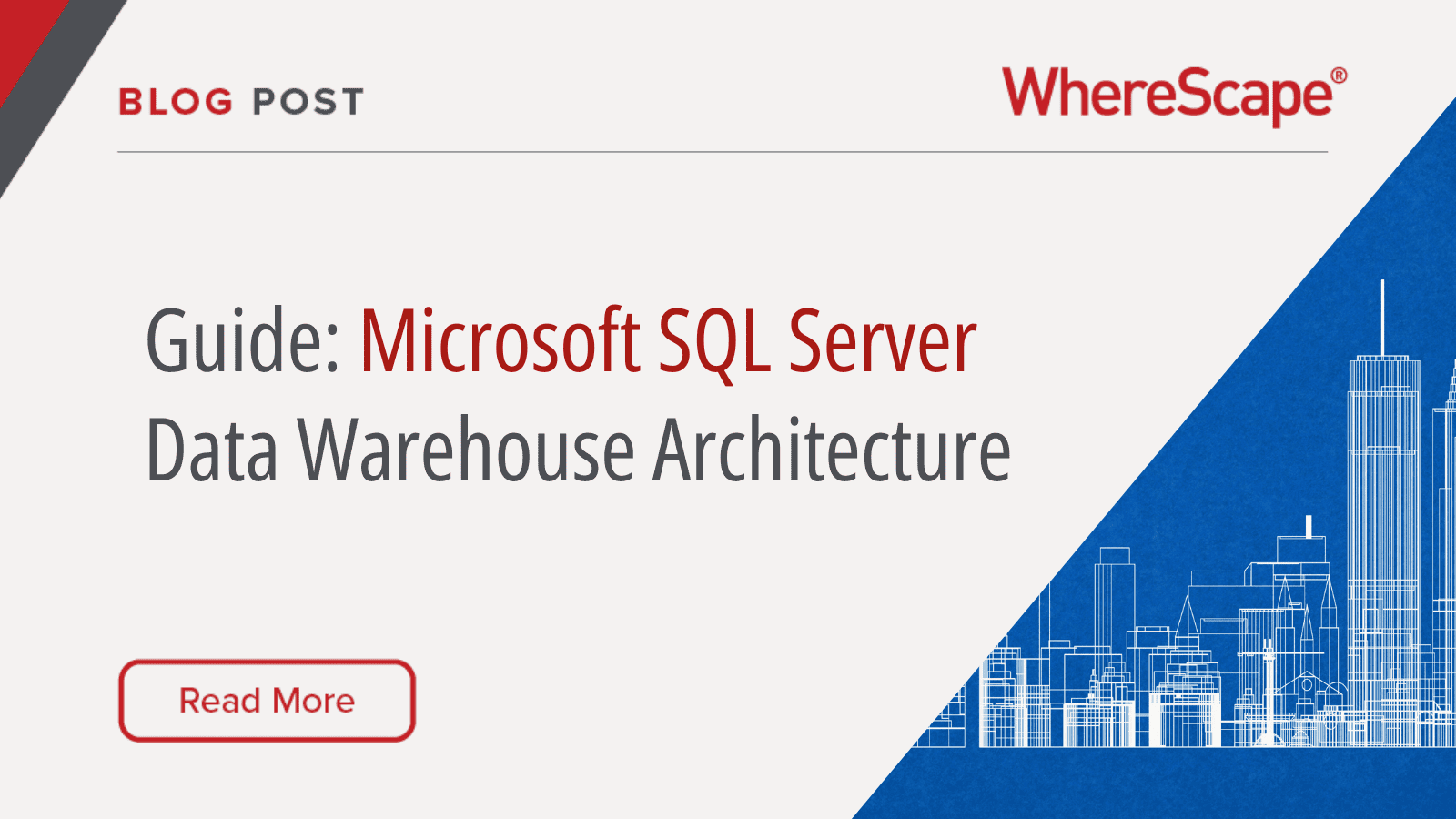After nearly a quarter-century in the data automation field, WhereScape has established itself as a leader by offering unparalleled capabilities that surpass its competitors. Today we’ll dive into the advantages of WhereScape and highlight why it is the premier data automation solution.
Unmatched Industry Versatility
One of WhereScape’s key strengths is its versatility. It caters to a wide range of industries, including healthcare, finance, manufacturing, and education. Each industry has unique data processing needs, and WhereScape’s adaptable automation tools are designed to meet these varied requirements effectively.
- Healthcare: WhereScape helps manage vast amounts of patient data, ensuring compliance with regulations like HIPAA while enabling advanced analytics for better patient outcomes. Hospitals can automate data workflows, reducing manual errors and improving patient care through timely and accurate data.
- Finance: Financial institutions use WhereScape to handle complex financial data, enhance risk management, and comply with regulatory requirements such as those from the SEC and FINRA. The platform’s automation capabilities allow for real-time data processing, essential for trading, compliance, and reporting.
- Manufacturing: WhereScape supports manufacturing companies by standardizing supply chain data, improving production efficiency, and facilitating predictive maintenance through real-time data analysis. Manufacturers can integrate data from various sources to streamline operations and reduce downtime.
- Education: Educational institutions benefit from WhereScape by streamlining administrative data, enhancing student performance analytics, and supporting research initiatives through efficient data management. Universities can automate the collection and analysis of student data to improve educational outcomes.
Decades of Experience
Founded in 2001, WhereScape has a long-standing presence in the data automation market. While many of its competitors were established in the last couple of years, WhereScape has been researching, identifying, and creating data automation solutions for nearly a quarter of a century. This longevity translates to a wealth of experience and proven reliability. Over the past 24 years, WhereScape has continually evolved to incorporate the latest advancements in data management, ensuring that it remains at the forefront of the industry.
- Proven Track Record: With over two decades in the industry, WhereScape has a proven track record of successful implementations across various sectors. This experience is a testament to its reliability and capability to handle complex data automation challenges.
- Continuous Innovation: WhereScape’s commitment to innovation ensures that it stays ahead of market trends. Regular updates and enhancements to its platform mean that users always have access to the latest features and improvements.
- Trusted by Industry Leaders: WhereScape is trusted by numerous high-profile clients, including Disney, Nike, Toyota, Fidelity Bank, and Bucknell University. These endorsements highlight the platform’s capability to deliver substantial efficiency gains and rapid data processing.
Predictable Pricing
WhereScape’s licensing model is a major advantage over many of its competitors. Unlike other data automation enterprises that charge based on data usage, WhereScape offers a flat-rate pricing model. This approach provides substantial cost savings, especially for organizations with large or growing data needs.
- Flat-Rate Pricing: By not charging based on data usage, WhereScape allows businesses to scale their data operations without worrying about escalating costs. This is particularly beneficial for companies experiencing rapid data growth.
- Predictable Budgeting: The flat-rate model provides predictability in budgeting, allowing organizations to plan their expenses without the uncertainty of fluctuating costs based on data volume.
- Maximized ROI: Companies can maximize their return on investment with WhereScape’s cost-effective pricing, ensuring that every dollar spent contributes to tangible improvements in data management and business intelligence.
Many competitors charge by data usage or per line of automated code, and it can significantly impact costs. A detailed study shows that costs can go up to $3.98 per line of code. For example, a relatively small project requiring 100,000 lines of code equates to a cost of almost $400,000!
Furthermore, many other data automation companies claim to offer cheap solutions but fail to mention that they only provide certain elements required to build and manage a data warehouse. Using the ELT process (Extract, Load, Transform,) as an example, they may offer a tool to transform your data but do not provide any solutions for the extraction or loading phases. In other situations, competitors will offer a data management solution but do not supply customers with a scheduler, support for data modeling, or SQL scripts to build hubs, links, or satellites. These all require add-ons or plug-ins that are not only costly but also can cause integration problems since they come from third-party vendors. With WhereScape, clients can rest assured they are receiving all the elements they need to create, automate, and manage their data warehouse successfully.
End-To-End-Solution
Many competitors in the data automation space offer piecemeal solutions that address only parts of the data warehousing lifecycle. For example, some tools may focus heavily on data modeling but lack the automation capabilities required for fast deployment and maintenance, leaving teams to manually write and manage code. Others provide automation for specific platforms or tasks but do not offer comprehensive design and planning capabilities.
WhereScape provides a unique, comprehensive, end-to-end solution for building and managing a full data warehouse. This is attributed to WhereScape’s two primary products: WhereScape 3D and WhereScape RED. WhereScape 3D enables users to visually design and model data warehouses, plan data flows, and ensure that the architecture aligns with business requirements. This upfront, metadata-driven approach ensures that businesses have a clear understanding of their data landscape and can refine their design before any code is written.
Once the design is solidified, WhereScape RED automates the entire development process, from code generation to orchestration, transforming the design into a fully operational data warehouse with minimal manual intervention. This seamless transition from planning to execution dramatically reduces the time, effort, and complexity that comes with building a data warehouse. WhereScape stands out by delivering a fully integrated solution that spans from design to deployment, ensuring consistency, reducing errors, and speeding up the delivery of insights across the entire data lifecycle.
Platform-Agnostic Integration
Companies often change or significantly overhaul their data platforms every 5 to 7 years, based on industry needs, technology advancements, and business goals. Fortunately, WhereScape is designed for complete platform versatility. Its platform-agnostic nature is a major competitive advantage, enabling seamless integration with all major cloud platforms such as Microsoft Fabric, Azure SQL, Snowflake, Redshift, and Databricks. This flexibility ensures that businesses can utilize WhereScape’s automation tools regardless of their existing data infrastructure.
Unlike other data automation companies tied to specific environments – Coalesce only being available with Snowflake, for example – WhereScape allows organizations to maintain control over their data by supporting multi-cloud, hybrid, and on-premise architectures. This ability to integrate with various platforms gives businesses the freedom to transition between platforms or combine them without disruption. If a company wants to move its data warehouse from one platform to another, the transition can be completed in as little as 5 days with WhereScape!
Continually Improving with 3-Week Development Cycles
WhereScape’s commitment to continuous improvement is demonstrated by its dynamic three-week development cycle, through which new products, features, and enhancements are consistently rolled out to meet evolving customer needs and industry demands. To illustrate this point, take note of the newest versions of WhereScape RED and 3D here.
This agile development approach empowers WhereScape to stay ahead of technological advancements, delivering solutions that are always cutting-edge and adaptable to changing data environments. Each development cycle is strategically designed to prioritize both incremental enhancements and significant feature releases, ensuring that every update brings value—whether through performance optimization, user interface improvements, or new automation capabilities.
By keeping development sprints focused yet flexible, WhereScape is able to incorporate real-time feedback from users and partners, driving innovation based on the actual needs of the clients working directly with data automation tools. This feedback loop not only enhances the product but also builds stronger relationships with customers who see their insights reflected in the improvements. The continuous flow of updates strengthens the platform’s versatility, ensuring that it remains platform-agnostic and adaptable to various infrastructures, cloud environments, and emerging data architectures, such as Data Lakes, Data Fabrics, and Data Meshes. Ultimately, WhereScape’s consistent evolution ensures users stay at the cutting edge of data management and automation without the burden of manual system upgrades or extensive custom development.
- Broad Compatibility: WhereScape’s ability to integrate with various platforms ensures that it can fit into any data ecosystem. This is crucial for companies with diverse data environments.
- Future-Proofing: As new platforms and technologies emerge, WhereScape’s platform-agnostic approach ensures that it can quickly adapt and integrate, providing long-term value and flexibility for users.
- Streamlined Workflows: By supporting multiple platforms, WhereScape simplifies the data management process, enabling streamlined workflows and reducing the complexity of managing data across different systems.
Stay a Step Ahead with WhereScape Data Automation Solutions
WhereScape’s dynamic feature set, extensive industry application, continuous three-week development cycle, and long-standing market presence make it a leading choice for data automation. Its cost-effective licensing, platform-agnostic integration, and comprehensive automation capabilities empower businesses to perfect their data processes and achieve sustainable growth. Whether you’re in healthcare, finance, manufacturing, or education, WhereScape offers the tools you need.
To learn how WhereScape stays ahead of the competition and to see how our solutions can benefit your organization, schedule a consultation with one of our data experts today.



